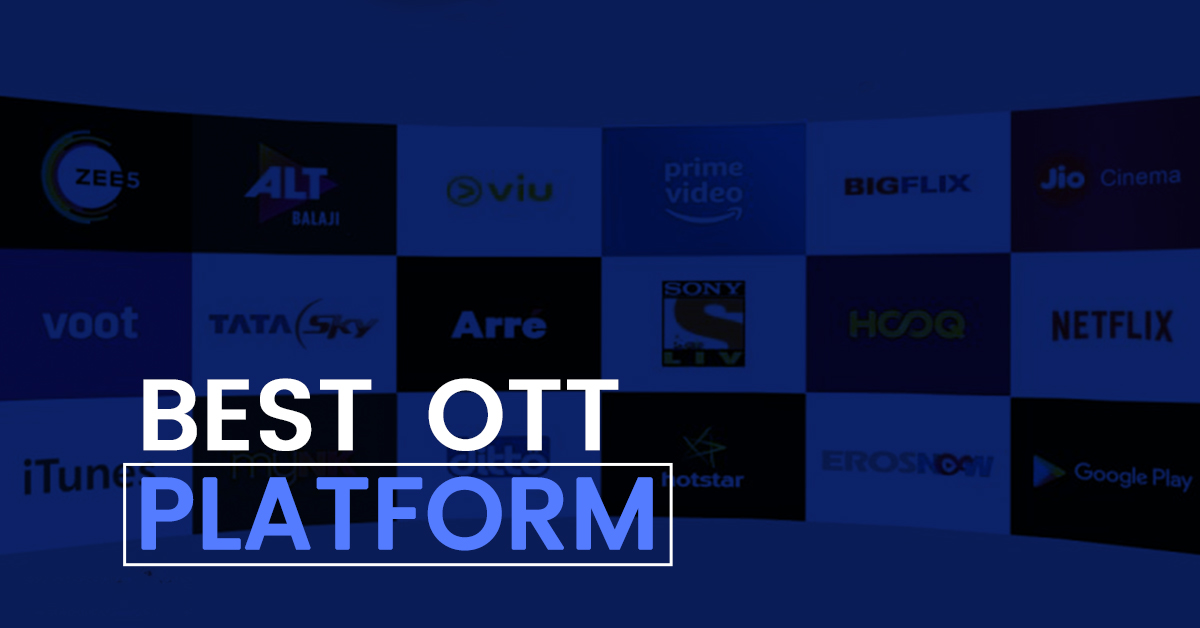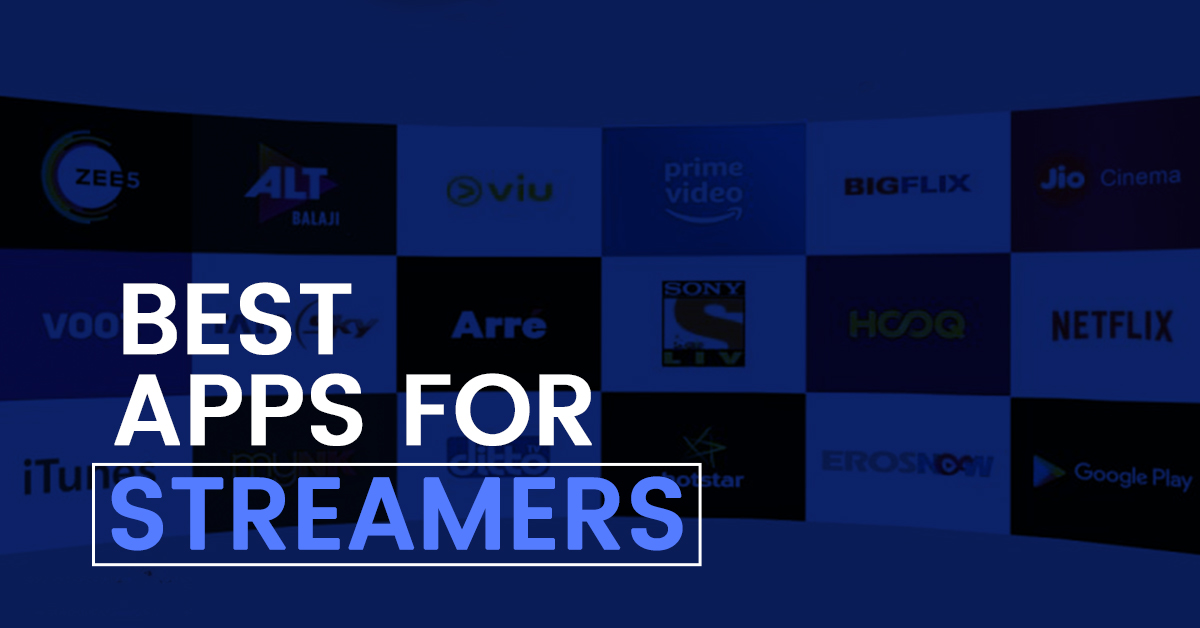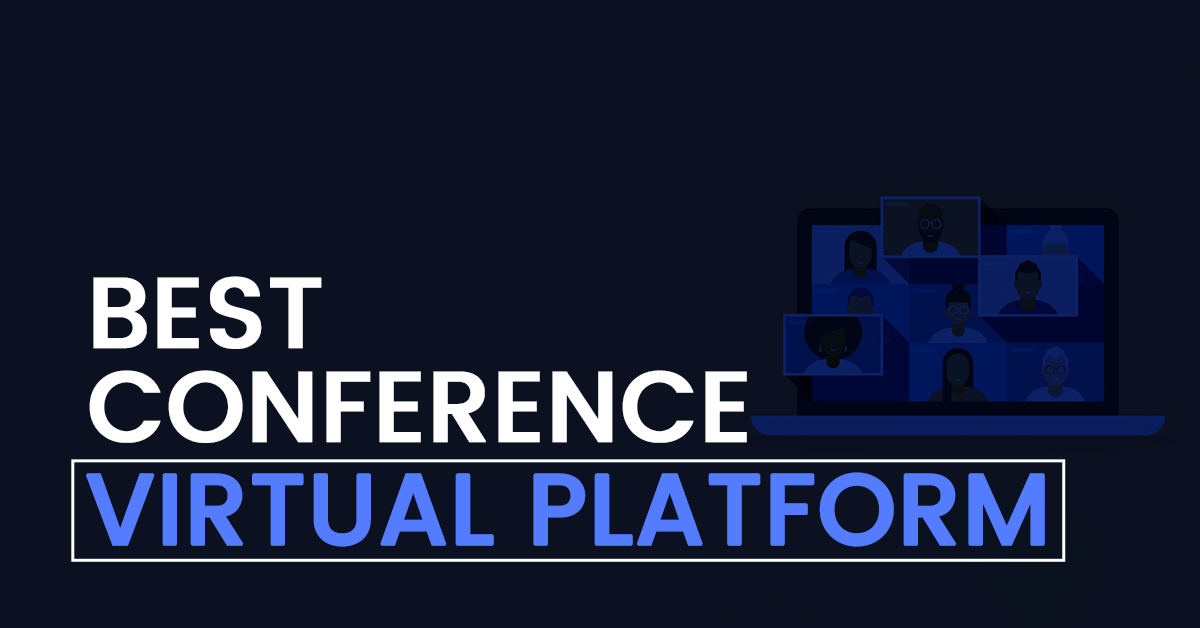
Review of the Best over-the-top (OTT) Platform
Want to know the best OTT platform to stream from in 2022? Read this! Over-the-top(OTT) streaming platform is the new normal as the world is
Home » Event

Want to know the best OTT platform to stream from in 2022? Read this! Over-the-top(OTT) streaming platform is the new normal as the world is

Want to engage your audience in a lively conversation? Here’s your luck. The vast majority of streamers rely on a suite of apps to facilitate

When the COVID-19 pandemic started raging across the globe, many organizations were forced to move their conferences and events online. While this was a challenge,
This article is your guide to the latest and greatest event software. We’ll break it down in simple terms, exploring how technology is changing the game for smoother, more exciting events.
Whether you’re a pro planner or just love attending events, we’ve got the scoop on the tools to make a big impact. Get ready to discover the easy way to host unforgettable gatherings!
Event software refers to a category of digital tools and applications designed to facilitate and enhance various aspects of event planning, organization, and management.
These software solutions are created to streamline tasks, improve efficiency, and provide a better overall experience for both event organizers and attendees.
Event software can encompass a wide range of functionalities, including online registration, ticketing, attendee management, scheduling, marketing, analytics, and more.
Whether used for conferences, trade shows, weddings, or other gatherings, event software aims to simplify the planning process, increase engagement, and ensure the success of events.
These software types collectively contribute to creating well-organized, engaging, and successful events, whether in-person, virtual, or a combination of both.
Event registration software simplifies the attendee sign-up process, offering online forms, secure payment processing, and efficient management of attendee data. This tool ensures a smooth and accurate registration experience.
Ticketing software manages the sale of event tickets and controls access. With features like online ticket sales, seat selection, and QR code scanning, it streamlines the ticketing process, enhances revenue tracking, and improves entry management.
These comprehensive solutions provide end-to-end event planning capabilities. From task automation and budget management to venue selection and communication tools, event management platforms centralize control, foster collaboration, and optimize resource allocation.
Virtual event platforms facilitate online or hybrid events by offering virtual attendee engagement, live streaming, interactive elements, and detailed analytics. They enhance accessibility, broaden audience reach, and enable real-time interaction in virtual or hybrid event settings.
Event marketing software enhances promotional efforts through features like email campaigns, social media integration, analytics, and promotional material creation. It enables targeted marketing, increases event visibility, and provides data-driven insights to optimize marketing strategies.
These advantages collectively contribute to the success and seamless execution of events.
Event software automates various tasks such as registration, ticketing, and attendee management, reducing manual efforts. This not only saves time but also enhances overall efficiency in organizing events. Planners can focus on strategic aspects, knowing that routine processes are being handled seamlessly by the software.
Event software improves the experience for attendees by providing easy online registration, streamlined ticketing processes, and access to event information. Virtual event platforms, in particular, offer interactive features, networking opportunities, and on-demand content, enriching the overall participant experience.
These tools enable precise data management, reducing the likelihood of errors associated with manual processes. Additionally, event software often includes analytics features, allowing organizers to gather insights into attendee behavior, engagement, and preferences. This data-driven approach helps in making informed decisions for future events.
Event marketing software empowers organizers to execute targeted and effective promotional campaigns. Features like email marketing, social media integration, and analytics provide a comprehensive view of marketing efforts. This leads to increased event visibility, higher attendance rates, and better engagement with the target audience.
Event management platforms assist in optimizing costs and managing budgets more effectively. By automating tasks, reducing manual errors, and providing insights into expenses, organizers can allocate resources efficiently. This ensures that the event stays within budget while maximizing the impact of the allocated resources.
The price of event software can vary based on what it can do and how big the events are. Simple software for small events might cost less, while advanced tools for big events can be more expensive. Some software is specifically for online or hybrid events.
Even though it might seem costly upfront, many organizations believe it’s worth it because it makes planning events easier and keeps attendees happy.
Some software has different pricing plans, so organizers can pick what fits their needs and budget. It’s like deciding if the benefits and features of the software are worth the money it costs.
Lots of different people and groups use event software. People who plan events, like wedding planners or those working for companies that organize events, use it to make things run smoother. Businesses, big and small, use event software for their conferences and trade shows.
Marketing teams also use special software to advertise events and see how well their promotions are doing. Schools and nonprofits use it for conferences and fundraising events. Anyone who needs to organize an event and make it successful can benefit from using event software.
Several popular event software products cater to the diverse needs of event planners, organizers, and businesses.
Eventbrite is a widely used platform for online event registration and ticketing. It is user-friendly and offers features for promoting, selling tickets, and managing registrations for events of all sizes.
Cvent is a comprehensive event management platform that covers various aspects of event planning, including registration, venue selection, and attendee engagement. It is known for its scalability, making it suitable for both small and large events.
While primarily known for video conferencing, Zoom has gained popularity as a virtual event platform. It facilitates virtual meetings, webinars, and online events, offering features like breakout rooms and participant engagement tools.
Whova is an event management and networking app that enhances attendee engagement, provides event information, and allows for seamless communication. It is particularly popular for conferences and trade shows.
Hubb is an event management software that focuses on content management, speaker collaboration, and agenda building. It is designed to streamline the process of organizing conferences and large-scale events.
Bizzabo is an all-in-one event platform that covers aspects like event marketing, registration, and attendee engagement. It is known for its modern and customizable interface.
This table outlines key features of event software along with brief descriptions of each feature’s functionalities. The goal is to assist event organizers in selecting software that aligns with their specific needs and enhances the overall event planning and management process.
| Feature | Description |
| Event Registration | Enables easy online registration for attendees, streamlining the sign-up process. Allows organizers to collect participant information, manage registrations efficiently, and enhance the overall attendee experience. |
| Ticketing Management | Manages ticket sales, offering features such as online ticketing, seat selection, and secure payment processing. Enhances revenue tracking and ensures smooth entry management during events. |
| Event Marketing Tools | Provides tools for effective event promotion, including email campaigns, social media integration, and analytics. Enhances marketing strategies, increases event visibility, and engages the target audience to boost attendance. |
| Virtual Event Support | Facilitates online or hybrid events with features like virtual attendee engagement, live streaming, and interactive elements. Provides a seamless experience for remote participants and expands event reach beyond physical boundaries. |
| Comprehensive Management | Offers an all-in-one solution for end-to-end event planning. Automates tasks, manages budgets, handles venue selection, and fosters collaboration among event organizers. Centralizes control and optimizes resource allocation for efficient event execution. |
| Attendee Engagement | Enhances attendee interaction through features like virtual networking, live polls, and interactive sessions. Creates a more engaging and enjoyable experience, whether for in-person or virtual events, fostering participant satisfaction and retention. |
| Data Analytics and Insights | Gathers and analyzes data related to attendee behavior, engagement, and preferences. Provides valuable insights to organizers for informed decision-making, improving future events, and optimizing strategies based on real-time data. |
This table outlines important integrations for event software, along with brief descriptions of each integration’s functionalities. These integrations enhance the overall capabilities of event software by enabling seamless interactions with other tools and platforms, ultimately contributing to more efficient event planning and management.
| Integration | Description |
| Payment Gateways | Integrates with various payment gateways, allowing seamless and secure processing of financial transactions for ticket sales, registrations, and other event-related payments. Ensures flexibility and convenience for both organizers and attendees. |
| CRM Integration | Integrates with Customer Relationship Management (CRM) systems to centralize and manage attendee information. Enhances communication, allows for targeted marketing efforts, and improves overall relationship management for recurring events and long-term engagement. |
| Email Marketing Tools | Integrates with popular email marketing platforms for efficient communication and promotion. Enables organizers to sync attendee lists, automate email campaigns, and track the success of marketing efforts, ensuring effective engagement and event promotion. |
| Social Media Platforms | Integrates with major social media platforms to streamline event promotion. Allows organizers to share event details, automate posts, and track social media interactions. Enhances visibility and extends the reach of events by leveraging the power of social networks. |
| Analytics and Reporting | Integrates with analytics and reporting tools to provide in-depth insights into event performance. Allows organizers to track attendee behavior, measure the success of marketing strategies, and make data-driven decisions for continuous improvement and optimization of future events. |
| Calendar and Scheduling | Integrates with calendar and scheduling tools to facilitate coordination and planning. Allows for the synchronization of event schedules, notifications, and reminders, ensuring that participants and organizers stay updated and organized throughout the event lifecycle. |
| Collaboration Platforms | Integrates with collaboration platforms, such as project management tools and communication channels. Enhances teamwork among event organizers, streamlining tasks, facilitating communication, and ensuring a cohesive and coordinated approach to event planning and execution. |
Proactive planning, thorough research, and effective communication with software providers are essential in addressing these potential issues. Event organizers can minimize risks and enhance the overall success of their events by being aware of these challenges and implementing strategies to mitigate them.
Event software may experience technical glitches or downtime, impacting the registration process, ticket sales, or overall functionality during crucial moments. This can lead to frustrated attendees and potential financial losses for organizers. Regular testing, choosing reliable software providers, and having contingency plans in case of technical issues can help mitigate these challenges.
Handling sensitive attendee information raises concerns about data security. In the event of a data breach, personal details such as names, contact information, or payment details could be compromised. Selecting event software with robust security features, using encrypted connections, and complying with data protection regulations help safeguard attendee data.
Ensuring seamless integration with other tools and platforms may pose challenges, especially if there are compatibility issues or limitations in connecting with existing systems.
Careful selection of software that supports necessary integrations, thorough testing of integrations before the event, and working closely with support teams can address integration challenges.
Event software, especially with advanced features, may require a learning curve for users. Inadequate training can lead to underutilization of features and inefficiencies in event planning.
Providing comprehensive training sessions, tutorials, and ongoing support can enhance user adoption. Choosing user-friendly software also contributes to smoother onboarding.
Event software that lacks scalability may struggle to handle sudden increases in users, data, or complexity, particularly for large-scale events. This can result in performance issues and hinder the smooth execution of events.
Choosing scalable software solutions that can adapt to the size and requirements of different events. Regularly assessing and upgrading infrastructure to accommodate growth ensures scalability
These trends reflect the dynamic landscape of event software, adapting to changing circumstances and the evolving needs of organizers and attendees.
Trend: The rise of hybrid events, combining in-person and virtual elements, has fueled the demand for event software that supports both formats. Platforms facilitating seamless integration between physical and virtual experiences are gaining prominence as organizations aim to reach broader audiences.
Trend: Virtual events continue to evolve, prompting event software to focus on enhancing virtual engagement features. Interactive elements, such as live polls, Q&A sessions, and virtual networking tools, are becoming integral to creating immersive online experiences for attendees.
Trend: The integration of AI in event software is on the rise, offering capabilities such as personalized recommendations, chatbots for attendee interactions, and predictive analytics. AI-driven insights assist organizers in making data-driven decisions and enhancing the overall event experience.
Trend: The emphasis on contactless experiences has led to the adoption of event software that facilitates mobile check-ins, digital ticketing, and touchless interactions. Mobile apps are becoming essential for delivering event information, schedules, and real-time updates to attendees.
Trend: With increasing concerns about data privacy, event software trends include a focus on robust security measures and compliance with data protection regulations. Platforms that prioritize the secure handling of attendee data and offer transparent privacy policies are gaining trust in the industry.
Here are the software and services:
Event marketing platforms complement event software by providing specialized tools for promoting events. These platforms often include features for email campaigns, social media integration, and analytics to maximize event visibility and attract attendees effectively.
Apps designed specifically for attendee engagement enhance the overall event experience. These apps may include features like live polls, Q&A sessions, networking tools, and interactive maps, fostering engagement and interaction among event participants.
Virtual event platforms go hand-in-hand with event software, particularly in the current landscape. These platforms provide a comprehensive solution for hosting online events, including features like live streaming, virtual booths, and interactive sessions, ensuring a seamless transition to virtual or hybrid event formats.
Analytics and reporting tools tailored for events help organizers gather insights into attendee behavior, measure event success, and make data-driven decisions. These tools often integrate with event software to provide comprehensive analytics on registration, engagement, and other key metrics.
Ticketing and registration services complement event software by specializing in managing the ticketing process. These services offer features such as secure online ticket sales, seat selection, and integration with event software to ensure a smooth and efficient registration experience for attendees.
Frequently Asked Questions on Event Software